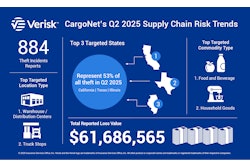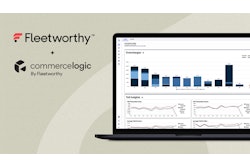
At Schneider (CCJ Top 250, No. 6), efforts to streamline its cross-border operations via rail are paying off.
Schneider in April 2023 started offering intermodal service on the then-newly merged CPKC, which connects the upper Midwest of the United States and Mexico, becoming a strategic intermodal carrier on CPKC’s north-south flagship intermodal service between Chicago and all major points in Mexico.
The Green Bay-based carrier said its average trip from Mexico – now the top trade partner to the U.S. – to Chicago is now up to three days faster than the industry average of seven days.
Late last year Schneider launched a new intermodal service with continuous rail service between points in Mexico and Texas and points in the Southeastern United States and has slashed transit times as a result.
"Decreasing shipping time by even a few days matters to our customers because the faster products can get on the shelves, the faster those items can land in the hands of consumers," said Schneider Senior Vice President of Intermodal Michael Baumgardt.
According to the Asociación Mexicana del Transporte Intermodal (AMTI), Mexico’s total cross-border intermodal market grew 17% last year, while Schneider’s intermodal volume grew at twice that rate. Intermodal is now Schneider’s fastest-growing segment, serving a variety of industries including automotive, appliances, food, produce, electronics and tires.
Schneider on CPKC, the company said, offers the fastest scheduled train service in and out of Mexico with up to 12% transit time reductions, and its stop-free rail connections boasts a 99.98% cross-border security rate through the CPKC Laredo bridge.
Clearing customs in-transit via rail and avoiding a hand-off at the border eliminates stops in route that can expose freight to theft, and CPKC’s proprietary Laredo train bridge crossing was the only intermodal service unaffected by bottlenecks at the U.S.-Mexico border in 2023 and 2024.
Intermodal service is also a step in Schneider’s ambitious sustainability goal of doubling its Intermodal capacity, significantly reducing carbon emissions and promoting greener logistics solutions. Schneider’s intermodal solutions offer a 62% reduction in CO2 emissions compared to Tier 5 truckload transportation.










